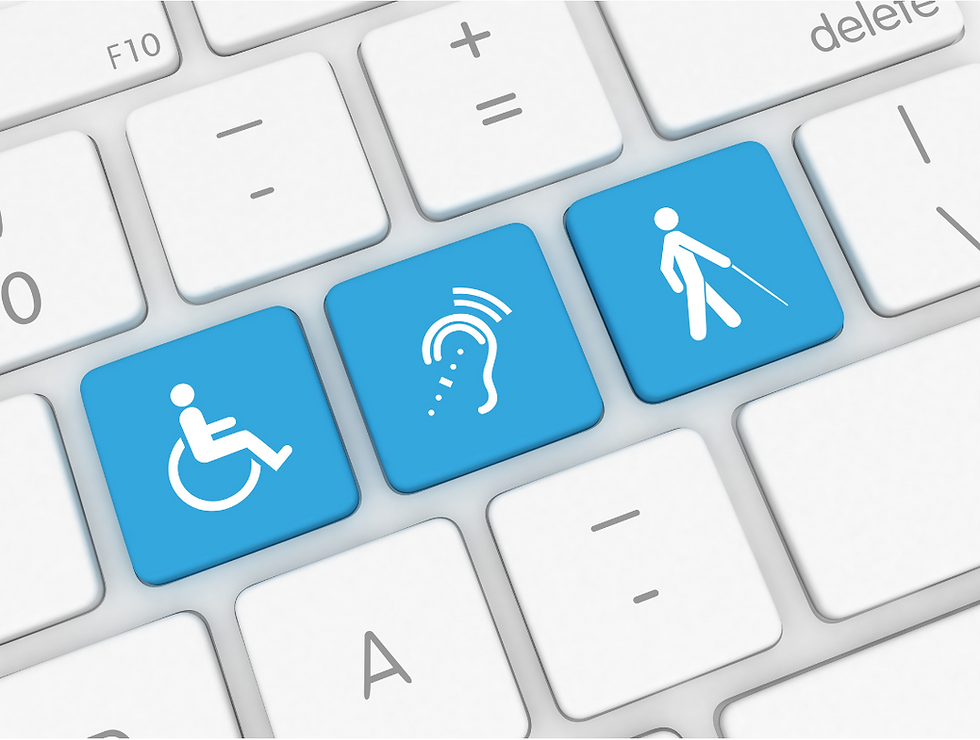Tame the Digital Jungle: Why Cleaning Up Your Screens Makes Everything Easier
- Jessi Spinney

- May 19, 2025
- 3 min read

Organization breeds efficiency. You already know that a messy desk slows you down; a messy digital workspace does the same—just more quietly. A digital mess is the overload of half-read emails, mystery downloads, sprawling cloud drives, and the “just-for-a-minute” browser tabs that multiply like rabbits. Left unchecked, that clutter negatively impacts both your mind and workflow.
How Digital Clutter Hijacks Your Brain
Digital clutter hijacks your brain in three intertwined ways: first, it creates a constant mental drag, because every unread email or red‑dot badge represents an unresolved task that your mind keeps cycling through—what psychologists call the Zeigarnik effect. This is where unfinished business monopolizes working memory and squeezes out space for deeper thought.
Second, it contributes to decision fatigue; with twenty browser tabs vying for attention, even determining where to start consumes cognitive energy, leading to procrastination. It can also compel you to make hasty choices that you’ll need to reassess later.
Finally, the ceaseless buzz of alerts triggers a stress spike, as studies show notification overload raises cortisol levels—your nervous system interprets those persistent pings as steady signals of danger.
Practical Pitfalls You’ll Actually Feel
🗂️ Scenario: Pre‑Meeting Scramble
🔻 What Goes Wrong: Can’t locate “final‑final” slide deck
💸 Real‑World Cost: Looks unprepared; delays decisions
☁️ Scenario: Cloud‑Drive Sprawl
🔻 What Goes Wrong: Duplicate or mislabeled files
💸 Real‑World Cost: Wasted storage fees; version errors
📬 Scenario: Inbox Overload
🔻 What Goes Wrong: 5,000+ unread messages
💸 Real‑World Cost: Missed deadlines, client emails, travel confirmations
🔔 Scenario: Notification Fatigue
🔻 What Goes Wrong: Slack, Teams, calendar pop‑ups
💸 Real‑World Cost: Important alerts drown in noise |
Five Quick Wins to Start Decluttering Today
Adopt the 20/20 Tab Rule
If a tab hasn’t been touched in 20 minutes and it’s 20 seconds away via search/history, close it.
Inbox Zero‑ish.
Create three labels—Action, Waiting, Archive. Touch every new email once. No lingering in the inbox.
Name Files On Import
Use `YYYY‑MM‑DD_Project_Keyword` before saving. Future searches take seconds, not minutes.
Weekly Digital Sweep
Block 15 minutes Friday afternoon to empty Downloads, trash screenshots, and file docs to cloud storage.
Turn Off Non-Human Notifications
Calendar reminders? Yes. Someone liked your comment? Goodbye.
Long‑Term Systems That Keep You Clean
Adopt a clear-eyed maintenance routine: first, establish a single source of truth by choosing one cloud service for all finalized documents, while relegating everything else to the draft stage. Next, set up automated nightly backups so you can delete clutter without fear of losing data. Complement these safeguards with periodic audits—run storage‑usage reports every quarter and archive or delete stale projects. Once you do this, you’ll be able to practice a mindful app diet by asking, before installing any new tool, “What am I willing to remove to make space for this?”
Bottom Line
A cluttered screen steals the same resources a cluttered desk does—time, clarity, and calm. It’s invisible; the damage often goes unnoticed until a missed file tanks a client pitch or stress boils over. By treating your digital environment with the same respect you’d give an archival collection—labelled, stored, and accessible—you reclaim focus, speed, and peace of mind. Start with one small sweep today; your future self will click “Save” and smile.
.png)


